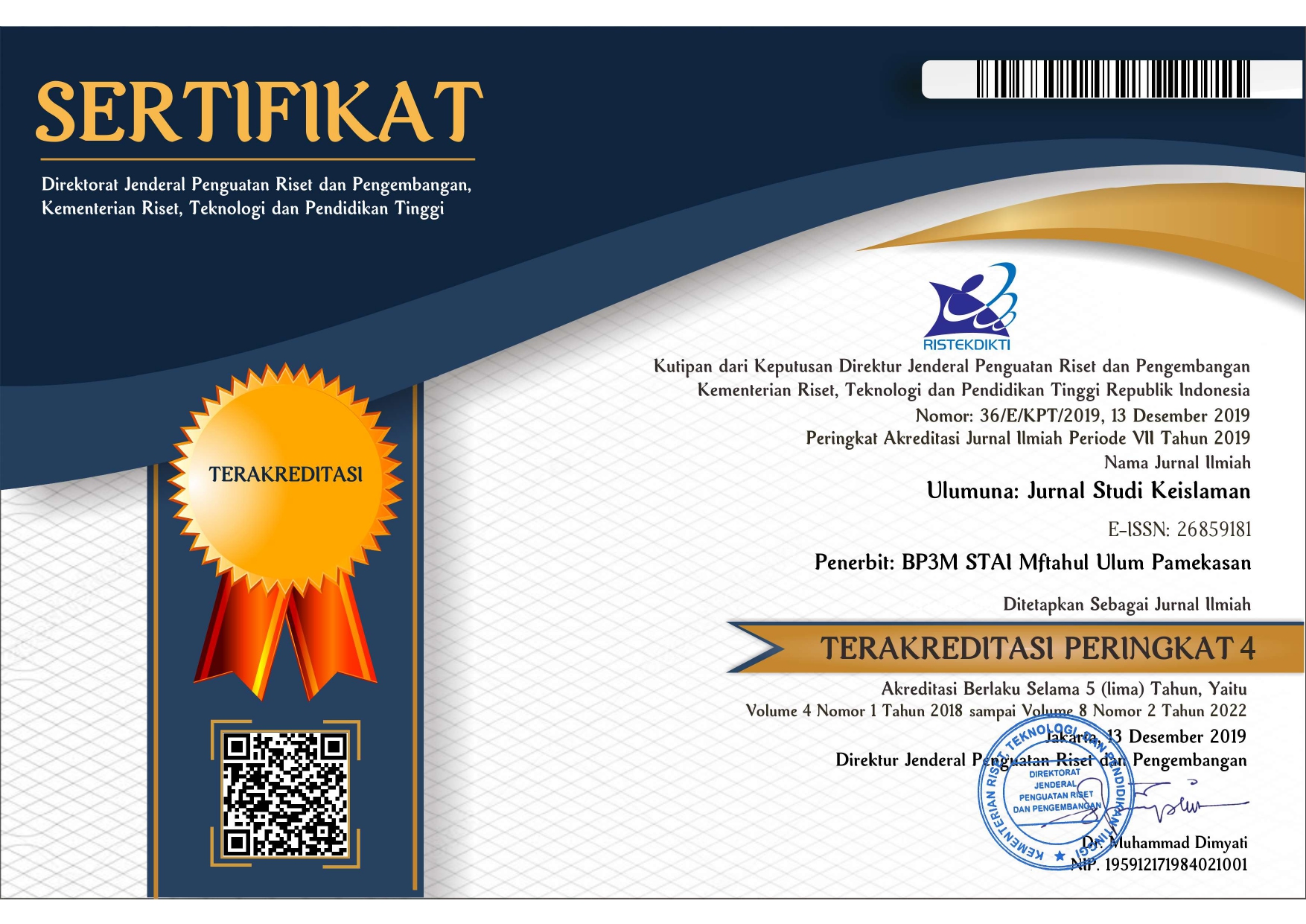Transformasi Peran Sosial-Keagamaan Pesantren Aswaja dalam Arsitektur Moderasi Beragama di Indonesia
DOI:
https://doi.org/10.36420/ju.v11i1.8350Abstract
Indonesia, as a multicultural nation, faces serious challenges due to rising religious intolerance and radicalism, which demand effective strategies to reinforce religious moderation. This study aims to identify, synthesize, and analyze the contributions of the Ahlussunnah wal Jama’ah (Aswaja)-based pesantren’s religious and social practices in constructing the architecture of religious moderation, focusing on Pondok Pesantren Miftahul Ulum Panyeppen in Pamekasan. Utilizing a qualitative phenomenological approach, the research explores the lived experiences and interpretations of religious actors—including kiai, ustaz, senior students, and community members—through in-depth interviews, participatory observation, and institutional documentation. The findings reveal that the pesantren effectively translates Aswaja values such as tawassuth (moderation), tasamuh (tolerance), and tawazun (balance) into its curriculum, preaching methods, and inclusive social relations. This confirms that traditional pesantren can act as transformative agents, adapting to pluralistic realities while reaffirming Aswaja as a theological foundation for religious moderation in Indonesia. The study offers a locally rooted praxis model of religious moderation with relevance for both academic inquiry and public policy development.Downloads
Published
2025-11-16
How to Cite
Halim, H., & Safik, M. . (2025). Transformasi Peran Sosial-Keagamaan Pesantren Aswaja dalam Arsitektur Moderasi Beragama di Indonesia. Ulumuna: Jurnal Studi Keislaman, 11(1), 91–102. https://doi.org/10.36420/ju.v11i1.8350
Issue
Section
Articles
License
Copyright (c) 2025 Halim Halim, Moh. Safik

This work is licensed under a Creative Commons Attribution-ShareAlike 4.0 International License.
Jurnal ini terbuka untuk umun dan bisa digunakan untuk kepentingan ilmiah lainnya






